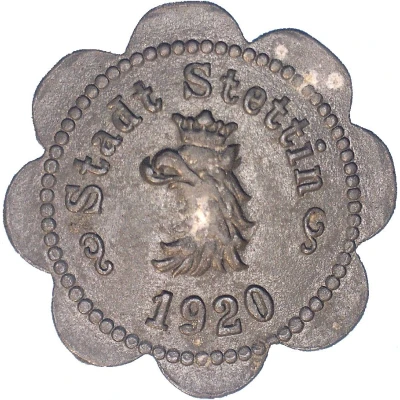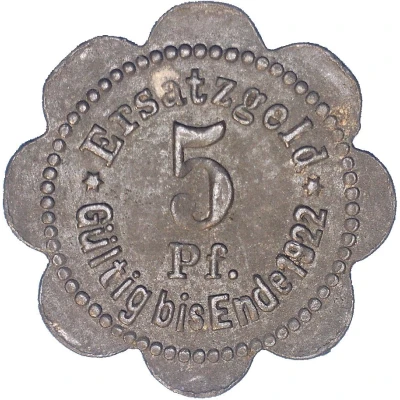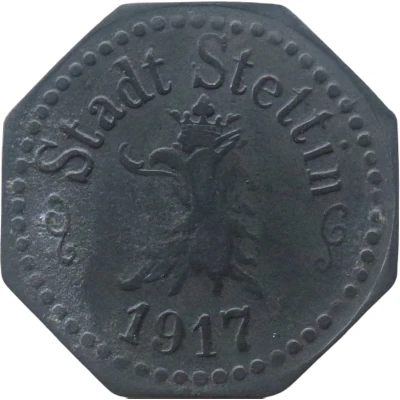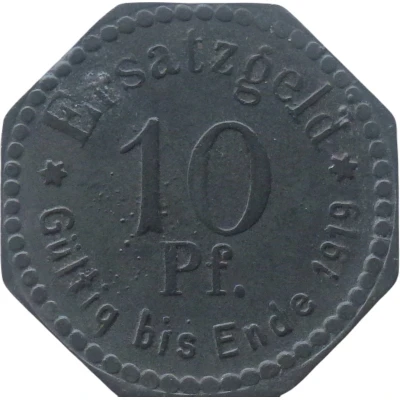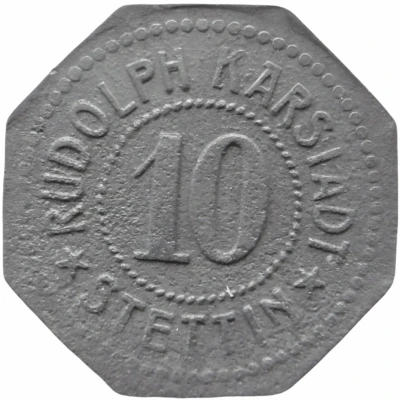
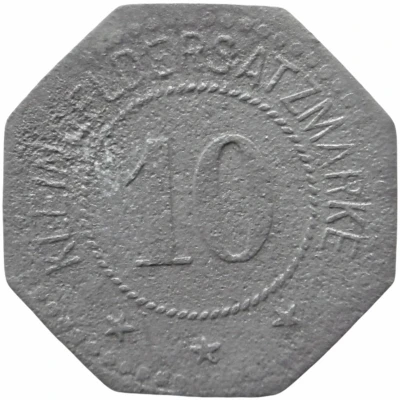

© Willem63 (CC BY-NC-SA)
10 Pfennigs - Stettin (Rudolph Karstadt) ND
| Zinc | 2.0 g | 20.8 mm |
| Issuer | City of Stettin (notgeld) (Prussian province of Pomerania) |
|---|---|
| Type | Standard circulation coin |
| Value | 10 Pfennigs (10 Pfennige) (0.10) |
| Currency | Mark (1914-1924) |
| Composition | Zinc |
| Weight | 2.0 g |
| Diameter | 20.8 mm |
| Thickness | 1.0 mm |
| Shape | Octagonal (8-sided) |
| Technique | Milled |
| Orientation | Medal alignment ↑↑ |
| Demonetized | Yes |
| Updated | 2024-10-04 |
| Numista | N#295359 |
|---|---|
| Rarity index | 94% |
Reverse
Pearl rim, legend surrounding rope circle with denomination centered
Script: Latin
Lettering:
KLEINGELDERSATZMARKE
10
★ ★ ★
Edge
Plain
Comment
Menzel: BBBFa: Manufakturwarenhandlung
Interesting fact
One interesting fact about the 10 Pfennigs - Stettin (Rudolph Karstadt) ND coin is that it was issued during a time of economic turmoil in Germany, specifically during the hyperinflation period of the 1920s. The coin was made of zinc, which was a cheaper alternative to traditional metals like copper or silver, and it weighed only 2.0 grams, making it a lightweight and portable option for everyday transactions. Despite its small size and value, the coin still holds historical significance as a symbol of the economic challenges faced by Germany during that time.
